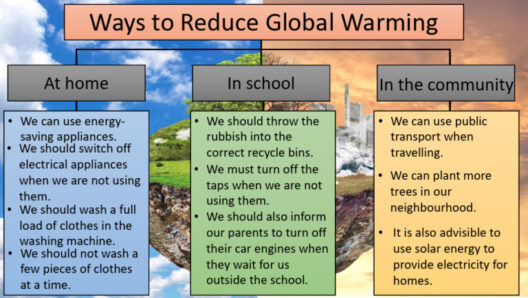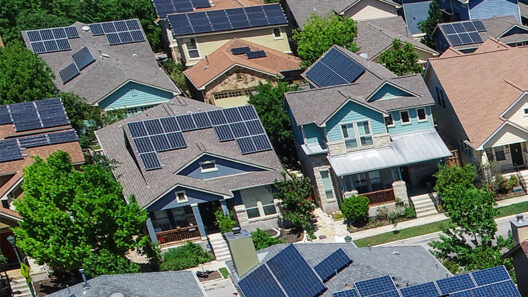Overpopulation has emerged as an increasingly omnipresent concern within the discourse of energy conservation, eliciting robust debate regarding its implications on environmental sustainability. As populations burgeon, the intricate relationship between human numbers and energy consumption becomes starkly evident, shedding light on a dire reality. It is not merely the number of individuals that leads to heightened energy needs; it is the collective consumption patterns and lifestyles they adopt that truly exacerbate the strain on our planet’s resources.
To grasp the gravitas of overpopulation’s impact on energy conservation, it is essential to first comprehend the concept of overpopulation itself. The term refers to a situation where the number of people surpasses the capacity of the environment to sustain them. This condition typically results in unsustainable resource depletion, habitat degradation, and a cascade of environmental issues. Among these issues, the demand for energy stands out prominently, serving as both a symptom and a catalyst for broader ecological disarray.
As the populace expands, the demand for energy surges in tandem. This exponential rise in energy requirements stems from various factors, including urbanization, industrialization, and increased consumption of consumer goods. Cities—densely populated and thriving with economic activity—require substantial energy inputs to facilitate transportation, heating, cooling, and electricity. The allure of urban life, accompanied by the promise of improved living standards, beckons individuals from rural areas and less developed regions, further amplifying the urban population surge.
This increased demand for energy brings forth multifaceted implications. Firstly, the burgeoning need for electricity, particularly in developing nations, often results in a dependence on fossil fuels. Coal, natural gas, and oil extraction activities not only fulfill energy needs but also exacerbate carbon emissions, contributing directly to climate change. This correlation between energy production and environmental degradation highlights the paradox of striving for improved living conditions while simultaneously compromising planetary health.
Moreover, the environmental repercussions of overpopulation extend beyond mere carbon footprints. Water resources—an essential component of energy production—face unprecedented stress. Hydroelectric power generation, which relies on water availability, is directly threatened by the increased prevalence of population centers. As more people inhabit the same geographic locale, the competition for diminished water resources intensifies, leading to conflicts and further environmental strain.
The quest for energy conservation amidst the challenges posed by overpopulation necessitates immediate and concerted efforts. Transitioning towards renewable energy sources presents a viable avenue for mitigating these challenges. Solar, wind, and geothermal energy offer sustainable alternatives that could alleviate dependence on fossil fuels. However, the implementation of such initiatives often encounters systemic obstacles, including political inertia, economic disparity, and public resistance.
One of the potential solutions to the quandary of overpopulation and energy conservation lies in education. Raising awareness about family planning and sustainable lifestyles can influence population growth rates. Comprehensive educational programs that promote reproductive health and empower individuals to make informed choices regarding family size can function as a critical lever in reducing future population pressures.
Technological innovation also plays an integral role in addressing the energy crisis exacerbated by overpopulation. Investments in energy-efficient technologies and infrastructures, such as smart grids and energy-efficient appliances, can significantly reduce overall energy consumption. Furthermore, research into emerging technologies, such as energy storage solutions and carbon capture systems, can facilitate the smooth transition towards a low-carbon future.
Nonetheless, the challenge of overpopulation cannot be divorced from socioeconomic factors. In many regions, poverty and lack of access to education intertwine, leading to higher fertility rates. Therefore, an integrated approach that tackles not only energy conservation but also social equity is imperative. Strategies that foster economic development while promoting sustainable practices can help diminish the forces driving overpopulation.
Urban planning also merits consideration in the discourse surrounding energy conservation and overpopulation. As cities grow, the design and functionality of urban spaces can either hinder or enhance energy efficiency. Compact city models, with mixed-use developments and efficient public transportation systems, can significantly reduce energy consumption and create a synergistic relationship between living space and resource availability.
As we look to the future, it is crucial to understand that overpopulation is not merely a statistic; it is a complex interplay of factors that shape our planet’s ecological and energy dynamics. The ramifications of unchecked population growth pose severe threats to energy conservation efforts, exacerbating existing dilemmas and creating new challenges. Therefore, a multifaceted approach incorporating education, technological advancements, and social equity can lay the groundwork for a sustainable future.
Ultimately, the legacy we leave for future generations hinges on our ability to confront the implications of overpopulation on energy conservation head-on. As stewards of the earth, we bear the responsibility to align our energy use with the ecological limits of our planet. By embracing innovative solutions and prioritizing sustainability, we can navigate the intricate web of challenges posed by overpopulation while securing a more equitable and environmentally resilient future.








